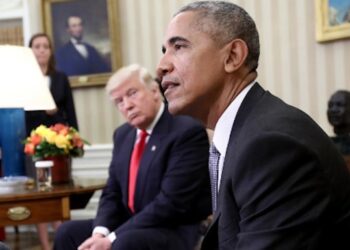In a fiery U.S. Senate hearing on Thursday, in front of the oversight hearing in the Senate Finance Committee, Robert F. Kennedy Jr., President Trump’s Secretary of Health and Human Services, faced a barrage of interruptions and accusations from combative senators. Dubbed “Mr. Kennedy” and “Mr. Secretary” with dripping disdain, RFK Jr. attempted to outline his agency’s bold reforms, only to be railroaded into political theater.
QUICK CLIP:
Watch Live: RFK Jr. testifies at Senate hearing amid CDC chaos https://t.co/IETUdJaxR1
— Bannon’s WarRoom (@Bannons_WarRoom) September 4, 2025
Senators like Ron Wyden, Michael Bennet, Bill Cassidy, Maria Cantwell, and Mark Warner unleashed a torrent of questions, often cutting him off mid-sentence, refusing to let him expand on ideas like tackling chronic disease roots—ultra-processed foods, chemicals, inactivity, and over-medicalization.
The hearing devolved into a spectacle of fear-mongering, with Democrats painting Kennedy as a “conspiracy theorist” hell-bent on endangering kids through vaccine skepticism. Protesters even disrupted proceedings, forcing a recess, underscoring the raw tension.
Kennedy opened with condolences for slain DeKalb County Officer David Rose, then pivoted to HHS achievements: cracking down on food dyes, baby formula contaminants, fluoride in water, e-cigarettes, drug prices, and more. He touted the end of gain-of-function research, reduction in animal testing, and addressing screen time in schools. Under Trump, HHS is slashing waste—saving $14 billion annually via Medicaid reforms—while expanding aid for low-income families and combating human trafficking, locating 22,000 missing unaccompanied children from the Biden era. He blasted the CDC’s failures during COVID, noting America’s dismal 20% of global deaths despite 4.2% of the population, and vowed to purge conflicts of interest for “unbiased, politic-free science.”The nastiness peaked in vaccine debates.
Wyden accused Kennedy of stacking the Advisory Committee on Immunization Practices (ACIP) with “anti-vaccine” figures after firing 17 members, citing a Wall Street Journal op-ed by ousted CDC Director Susan Manaras. Kennedy fired back, calling her claims lies and defending his picks as diverse scientists untainted by pharma ties. Bennet grilled him on appointees’ controversial views, like Dr. Malone’s mRNA criticisms, while Cassidy highlighted inconsistencies with Trump’s Operation Warp Speed, which Kennedy praised as Nobel-worthy despite canceling $500 million in mRNA contracts.
Cantwell decried undermining science, and Warner expressed shock at Kennedy’s uncertainty on COVID death tolls (around 1 million) and vaccine efficacy.
This felt like pure panic from senators, desperate to scare the public over HHS shifts away from Big Pharma dominance. Kennedy repeatedly slammed their inaction on chronic disease exploding to 76.4% of Americans, calling debates “rearranging deck chairs on the Titanic.”Rural Health Care:
The Midterm Powder Keg
Rural health emerged as a flashpoint, poised to ignite midterm and 2028 campaigns. Kennedy hailed the “One Big Beautiful Bill” for allocating $50 billion over five years—a 50% funding boost—to stabilize rural hospitals, which have seen 120 closures in a decade. These facilities are economic lifelines, often the largest employers in dying communities. Senators, including the Chairman Bill Cassidy, praised the Rural Health Transformation Program, countering false claims that blamed the bill for crises that predated its passage.
Yet, Warner warned of Medicaid “cuts” threatening food deserts and access, which Kennedy denied, insisting on systemic fixes for affordability. With rural voters key to Trump’s base, this issue could rally Republicans around promises kept, while Democrats exploit fears of lost services—making it a brutal battleground for hearts, minds, and ballots
.In this edgy showdown, Kennedy stood firm against the onslaught, exposing Senate theatrics as fear of real change. At 512 words, the hearing reveals a Washington elite scrambling as Trump’s HHS dares to disrupt the status quo.




